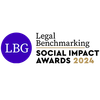FAQs: Patent Opposition and Appeals
Uncover more about patent oppositions and appeals with our comprehensive list of frequently asked questions. This resource has been designed to address your queries on patent oppositions and appeals, providing clarity on their definitions, the process of filing them, the extent of their protective scope, and the consequences of unsuccessful appeals.
Frequently Asked Questions #
What is a patent opposition?
A patent opposition is a legal procedure at the European Patent Office (EPO) that allows any person or company to challenge the validity of an existing granted patent. The Challenger must present evidence and arguments before a Patent Office to prove that the granted patent should not have been issued in the first place. Oppositions at the EPO are unique opportunities to challenge European-granted patents in all countries where a patent is valid.
When can I file a patent opposition?
To protect your rights, it is crucial to file a patent opposition within nine months of the grant of the patent. By doing so, you can challenge the patent's validity and potentially prevent any undeserved monopolies. Taking prompt action ensures a fair and competitive landscape for innovation.
How will I know if there is an existing patent that might affect my invention?
Before filing a patent application, it is highly recommended that you contact patent search experts and conduct a comprehensive prior art search. This search will help you identify any potential patents, published applications or documents that may impact the novelty and inventiveness of your invention. By conducting a thorough prior art search, you can ensure that your patent application stands a better chance of success and avoids unnecessary conflicts or rejections in the future. Murgitroyd’s dedicated patent search team can guide you with this.
What happens after filing a patent opposition?
Once a notice of opposition has been filed, it will be communicated to the patentee, who has four months to respond. All parties will be invited to attend an Oral Hearing before a panel of three experienced members with extensive knowledge in the field. During this crucial session, both parties will have the opportunity to present their arguments and provide supporting evidence, allowing the panel to thoroughly assess and determine the validity of the patent in question. The Oral Hearing is a significant milestone in the process, ensuring a fair and comprehensive evaluation of the case. At the oral proceedings, the patent will be either maintained as granted, revoked, or maintained in amended form.
How long does it take for a decision to be made on a patent opposition?
Typically, it takes about 18 months from the initial filing of an opposition for the decision-making process to reach its culmination. This timeframe allows for a thorough examination, deliberation, and consideration of all relevant factors before a deliberation is rendered.
What are the grounds for patent opposition?
A patent may be opposed on several grounds, including novelty, inventive step, sufficiency, and impermissible amendments. These grounds are crucial in evaluating the validity and strength of a patent application. Novelty refers to the requirement of the invention being new and not previously disclosed. The inventive step emphasises the non-obviousness of the invention, demonstrating that it involves an inventive leap beyond existing knowledge. Sufficiency ensures that the patent application provides enough information for a person skilled in the art to carry out the invention. Amendments during prosecutions are only allowable if they do not extend beyond the application as filed.
Who can file a patent appeal?
Any party who is not satisfied with a decision taken by the opposition division can file an appeal. Notice of appeal must be filed with the EPO within two months of the date of notification of the decision appealed from. This mechanism allows for a fair and transparent process, ensuring that any party involved has the opportunity to challenge the outcome if they feel it is necessary.
What are the grounds for patent appeal?
The appeal procedure provides a judicial review of the first-instance proceedings. The grounds for a patent appeal encompass various aspects, such as points of law that were misinterpreted, procedural irregularities or errors that occurred during the initial process, and incorrect findings of fact that might have influenced the outcome. These grounds provide a comprehensive framework for challenging and seeking a review of the patent decision.
How long does it take for a decision to be made on a patent appeal?
Typically, it takes about two years for the court to consider and render a decision on a patent appeal carefully. During this time, various factors, such as the case's complexity, the need for thorough analysis, and the examination of relevant precedents, contribute to the duration of the process. While the exact timeframe may vary depending on the specific circumstances, it is crucial for the parties involved to be patient and allow ample time for the court to reach a fair and well-considered judgment. Also, in appeal, the various parties will have the opportunity to present their case at an oral hearing.
What other remedies are available if my patent opposition or appeal is unsuccessful?
Generally, at the end of the oral hearing, the Board announces its final decision, either confirming the decision of the opposition division, arriving at a different conclusion, or resending the case to the opposition stage. If your patent opposition or appeal is unsuccessful, you may consider alternative remedies such as a licence agreement, an injunction or damages claims. In certain circumstances, it may also be possible to bring a nullity action before the court.
What should I do if I receive a notice of opposition or appeal?
If you receive a notice of patent opposition or appeal, it is important to seek professional advice as soon as possible in order to protect your rights and interests. You may also wish to consider counter-arguments that can be presented during the Oral Hearing or on appeal.
How much does it cost to file a patent opposition or appeal?
The official fees to file an opposition or an appeal amounts to a couple of thousand euros. The entire cost of a patent opposition or appeal proceedings depends on the case's complexity, and it usually ranges from 20,000 to 50,000 euros.




















